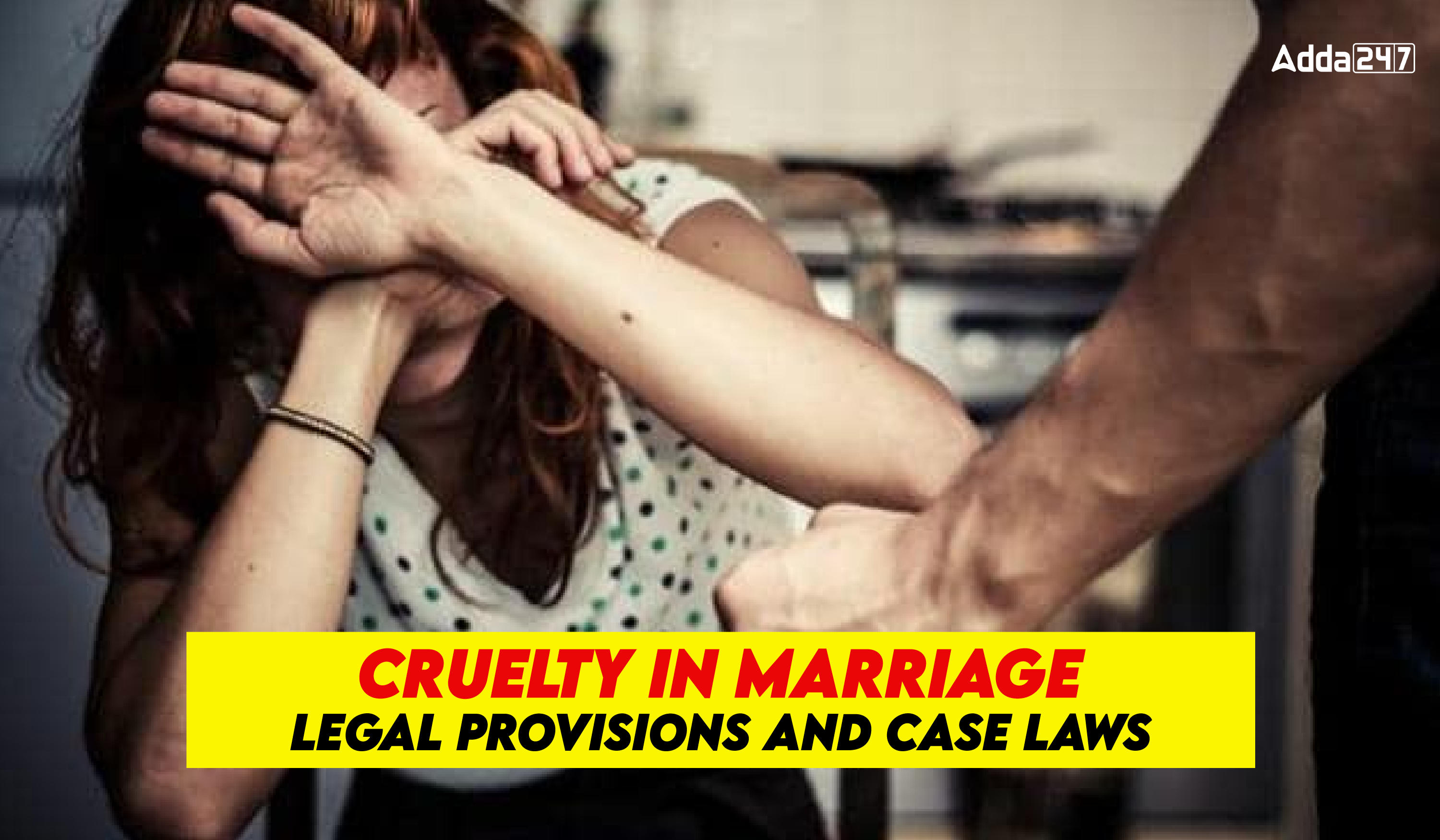Table of Contents
Cruelty in Marriage: The institution of marriage is revered in Indian society, often viewed as a sacred bond meant to last a lifetime. However, when this bond turns toxic, causing significant suffering to one or both parties, the law steps in to provide relief. One such relief is divorce on the grounds of cruelty.
While physical abuse is a clear form of cruelty, mental anguish, and psychological torment also constitute valid grounds for divorce under Indian law. This article delves into the concept of cruelty as a ground for divorce, its legal framework, and significant judicial precedents that have shaped this aspect of matrimonial law in India.
Defining Cruelty in Matrimonial Context
Cruelty, in the context of matrimonial relationships, refers to behavior by one spouse that causes physical or mental harm to the other, making it difficult or impossible for them to live together. The conduct must be severe and persistent, causing reasonable apprehension in the mind of the victim that living with the perpetrator would be harmful or injurious. It encompasses both physical violence and mental suffering, including verbal abuse, harassment, neglect, and humiliation.
Also Read: Personality Rights: Protecting Individual Identity
Legal Provisions on Cruelty as a Ground for Divorce
Under Section 13(1)(ia) of the Hindu Marriage Act, 1955, Cruelty is recognized as a ground for divorce. This provision was introduced through an amendment in 1976, reflecting the evolving understanding of matrimonial disputes and the need to protect individuals from abusive relationships. The Act does not provide an exhaustive definition of cruelty, leaving it to the Courts to interpret the term based on the facts and circumstances of each case.
Section 498A of the Indian Penal Code (IPC) also addresses Cruelty, specifically targeting the husband or his relatives who subject a woman to cruelty. This provision includes both physical and mental cruelty and prescribes imprisonment and fines as penalties.
Cruelty in Marriage: Key Judicial Precedents
1. Naveen Kohli v. Neelu Kohli (2006): This landmark case highlighted that persistent allegations of character assassination and baseless accusations by one spouse against the other constitute mental cruelty. The Supreme Court recommended amending the Hindu Marriage Act to include irretrievable breakdown of marriage as a ground for divorce, recognizing the severe mental anguish caused by such behavior.
2. Shobha Rani v. Madhukar Reddi (1988): The Supreme Court held that the test for cruelty is whether the conduct of the respondent is of such a nature that the petitioner cannot reasonably be expected to live with the respondent. The Court emphasized that cruelty must be assessed in light of the overall conduct and its impact on the aggrieved party.
3. Samar Ghosh v. Jaya Ghosh (2007): In this case, the Supreme Court laid down broad parameters for determining mental cruelty. It noted that mental cruelty could result from a variety of behaviors, including verbal abuse, humiliation, and indifference towards the spouse’s well-being. The judgment emphasized the subjective nature of mental cruelty, considering the sensitivity and circumstances of the individual victim.
4. V. Bhagat v. D. Bhagat (1994): The Court recognized that false allegations of adultery or unchastity could constitute mental cruelty. It stated that such accusations cause immense mental agony and damage the reputation of the innocent spouse, thereby justifying divorce on the grounds of cruelty.
5. Mayadevi v. Jagdish Prasad (2007): The Supreme Court acknowledged that both men and women could be victims of cruelty. In this case, the husband sought divorce due to mental cruelty inflicted by his wife, who constantly blamed him and his family members. The Court granted the divorce, highlighting that mental cruelty is not gender-specific.
Conclusion
Cruelty, whether physical or mental, constitutes a significant ground for divorce under Indian matrimonial law. Courts have played a crucial role in interpreting and broadening the scope of cruelty, ensuring that individuals in abusive marriages have recourse to relief and protection.
The evolving legal framework and judicial insights emphasize the importance of safeguarding the dignity and well-being of spouses, recognizing that marriage should foster support and companionship, not inflict suffering. As societal norms evolve, the law must adapt swiftly to provide timely and effective remedies for those ensnared in cruel and harmful relationships.
| Related Articles | |
| Supreme Court Upholds Abrogation of Article 370 | |
| Animal Rights in India | |



 TSPSC Group 1 Question Paper 2024, Downl...
TSPSC Group 1 Question Paper 2024, Downl...
 TSPSC Group 1 Answer key 2024 Out, Downl...
TSPSC Group 1 Answer key 2024 Out, Downl...
 UPSC Prelims 2024 Question Paper, Downlo...
UPSC Prelims 2024 Question Paper, Downlo...




